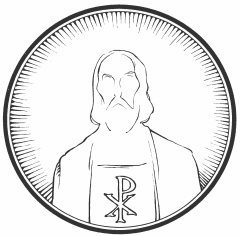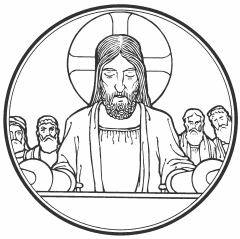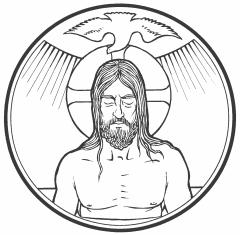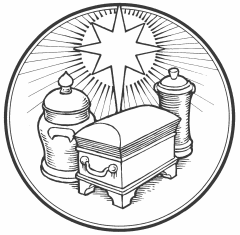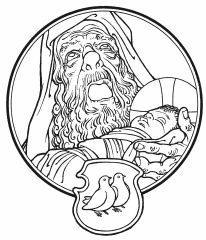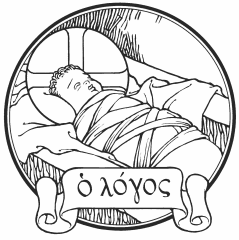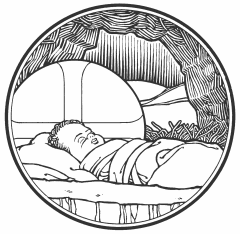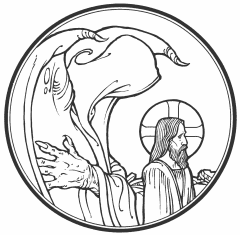 Grace, mercy, and peace to you from God our Father, and from our Lord and Savior, Jesus Christ, amen. The text for the sermon is the Gospel, which was read earlier.
Grace, mercy, and peace to you from God our Father, and from our Lord and Savior, Jesus Christ, amen. The text for the sermon is the Gospel, which was read earlier.
Temptation is something that has been present in creation since near the beginning of time. Adam and Eve were the first to fall prey to temptation and from then on, it’s been downhill into temptation ever since. The apostle Peter writes, “Be sober-minded; be watchful. Your adversary the devil prowls around like a roaring lion, seeking someone to devour.” He is always ready to pounce and tempt people into all kinds of sin. Fortunately, this ferocious lion has done battle with another lion, the Lion of Judah, and he could not overcome Him. As we see in our Gospel reading for today, at the very beginning of Christ’s ministry, the devil attacked Jesus, but our Lord defeated him by resisting all of his temptations, and He did this in order to save us.
The scene that Luke lays out for us today follows immediately after Christ’s baptism and brings Christ face to face with Satan, the very enemy whom He has come to destroy. As was said, temptation faces everyone, including Jesus Christ. He is no different than any other person throughout history. Everyone faces temptation at some point in their life and it was no different for Jesus. The temptation of Jesus was continuous over the period of forty days, but Luke gives us but three examples of the many ways in which Satan attacked Christ. We have no way of knowing just how Jesus was continually tempted. To tempt merely means to put to the test, here with an evil intent, that is, to cause someone to sin. Satan knew very well that Jesus had come to crush his power and if he could succeed just once in getting Jesus to give into temptation and sin, then he would win the victory. This was no sham or pretend temptation that Jesus faced. According to His human nature, Jesus was tempted in every way, just as we are, yet He remained sinless.
It would have been very easy for Jesus to give into the temptations of Satan, just like it is easy for us to give in to temptations. Jesus trampled the devil’s real temptation with Scripture. Christ, who has taught us to pray, “Lead us not into temptation,” had Himself been led by the Spirit to go where temptation was. He knew its strength and danger. His own temptation, all three of His temptations, stretching over a period of 40 days, were wholly concerned with the choice between right and wrong, between higher and lower means of carrying out the mission on which His heavenly Father had sent Him.
Can we doubt the seriousness of those forty days of decisive conflict? On the outcome hung the whole issue of His mission on earth and every hope of salvation of mankind.
Our Lord was setting out upon the mission of His heavenly Father. His mission was to bring all mankind into the kingdom of God, free from Satan. For that mission, He possessed gifts and powers that were brought to light in fullness at His baptism by John the Baptist when the voice declared from heaven, “You are my beloved Son; with you I am well pleased.”
The temptations which Jesus faced were great temptations indeed. They were meant for our Lord and Savior Jesus Christ to give up His divinity, to renounce who He is and to worship Satan. Christ knew what was at stake: us. We were at stake. Our salvation was at risk. Had Jesus given in, there would be no salvation for us. When God looks at us, He would continue to see our utter filth by sin. That is not what God sees because Christ refused to give in to Satan’s temptations for the sake of the Father’s will: that all men be brought to Him so that we might be saved.
Look beside you in this wilderness. There is Jesus. He too is alone. He too is starving. He too is miserable. He too is also stalked and hunted by Satan seeking whom he may devour. This is Jesus on His way to dying too. Why is Jesus here? He has never sinned. His body is pure and holy, so why is He in this barren place – hungry, tempted, suffering like this? You know the answer, don’t you? It’s because you are here.
Jesus cannot stay in heaven’s peace and glory while you are here suffering. If you lose all things, He loses all things. If you starve and sweat and squirm, He too must starve and sweat and squirm. If you suffer condemnation, He suffers condemnation. If you are to die, He must die too. He loves you too much to leave you here in sin’s desert, this fallen world, all at Satan’s tempting disposal. That is why Jesus faced the temptations that He did. That is why He lays down His life on Calvary’s cross, because you are at stake in everything.
The temptations that Jesus faces are temptations that you and I face daily. In looking at all of these temptations that Jesus faces, they all share one thing in common: the testing of God. All of these temptations go back to the very first temptation: “Did God really say…” The devil bends the power of words to his will. He lies. He even bends Holy Scripture in order to mislead. Today’s Gospel shows the devil lifting the words of Scripture out of context. He blasphemes against the very Word of God and omits a small word here and another small word there until the remaining words conform to his lie. In this way, he hopes to mislead and corrupt.
Fortunately for us, our Lord knows Scripture even better than Satan does. While Satan is a master of twisting the Scriptures, Jesus is the master of fulfilling them. He comes to fulfill all that is written of Him in the Law and the Prophets. He goes toe to toe with Satan and using the Word of God to defeat each and every temptation of Satan.
So often in our own lives are we tested, to put the promise of God to a test to see if it is true or not. Do we put our trust in the things of this world or do we put our trust in the Word of God? Do we go the easy way or do we go the hard way of suffering as God has said? The temptations of our Lord are the temptations of all mankind. The temptations of our Lord are the temptations of His Church. The temptations of our Lord are repeated in the temptations that come to you in your daily vocation.
When we are attacked and accused, we trust in Christ, who saved us by His perfect obedience, suffering, and death. When the devil tempts us to sin, we trust in Christ and His Word of truth. When the Law accuses us of sin, we trust in Christ and His perfect obedience. When death demands our life, we trust in Christ and His innocent suffering and death.
Our Savior knows what it is to be tempted. He willingly faced temptation by our enemy, the prowling lion, and He did it for our salvation. He won the battle, and His victory belongs to all who trust in Him. In the name of Jesus, amen. Now the peace of God that passes all understanding keep your hearts and minds in through faith in Christ Jesus, amen.
